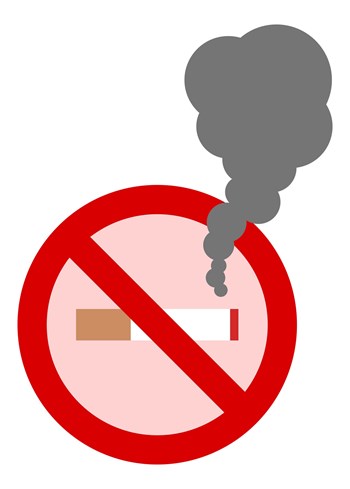
Q. I live in a condo and my neighbor downstairs from me is constantly smoking. I brought it to the attention of management and nothing has been done. What are my options as an owner: do I bring legal action against the management, or do I take legal action against the neighbor where the cigarette smoking is coming from?
—Keep Your Smoking Away from Me
A. “Your issue involves conduct by a condominium unit owner within his/her own unit,” says James Arrigo, an attorney at Rathje & Woodward, LLC in Wheaton. “Though many states (including Illinois, where I practice) have laws restricting smoking in public places and at work, these generally do not prohibit individuals from smoking in their own residences. You do not mention whether you have spoken to your downstairs neighbor about this problem in an attempt to resolve the problem. Often a simple conversation can avoid attorney fees and litigation. If you have exhausted this avenue, you may have options for legal action against your neighbor. The two most common theories of recovery are nuisance and breach of contract for acting contrary to your association’s declaration, depending upon the language in those covenants. If you are looking for immediate relief from the smoke, you would typically need to seek an injunction, for which you would need to show irreparable harm that can’t be adequately addressed by monetary damages. Such cases can be costly, not to mention create tension and hard feelings among neighbors, and you may not be able to recoup your legal expenses even if you eventually win.
“If, as your question suggests, your condominium association does not have restrictions on smoking, its board may have a limited ability to take action against your smoking neighbor. The association’s ability to help will be largely dictated by the specific language of your declaration related to nuisances. Because the association’s manager typically is an employee or agent of the association who takes direction from the board—rather than having any power to enact restrictions on his/her own—the manager could only help enforce restrictions that the association has adopted. The manager is therefore unlikely to be a good target for direct legal action. Instead, your best course may be to encourage the board to enact smoking restrictions, and then to enforce them against your neighbor. Such restrictions fall primarily into two categories: rules/regulations, and amendments to the covenants.
“Condominiums can typically adopt rules and regulations which restrict or prohibit smoking in association common elements such as hallways, entryways, and stairwells with only board approval (after the necessary notice to association members). The board may also be able to impose restrictions that require smoking unit owners to take steps to keep their smoke from filtering through to the hallways or adjacent areas through means like installing air filters or “smoke eaters.” The effectiveness of such equipment may also depend upon whether multiple units share a heating/cooling system.
“But to impose an outright ban on smoking inside individual owners’ units (which are private property), an amendment to the covenants is likely necessary. Such amendments are prepared by the board or the association’s attorney and must be approved as the covenants provide. At a minimum, an amendment will likely require approval by at least a majority of the board and the affirmative approval of up to 75% of the unit owners. Amendments must also be recorded against all of the units to become effective. Neither the board nor the manager is likely to have the power to completely ban smoking in the units if the owners decline to approve an amendment imposing such restrictions.
“On the upside, if the requisite percentage of owners approve an amendment to ban smoking in the units, courts have demonstrated a willingness to enforce them even against owners who counted on being allowed to smoke when they bought their condominiums. On the downside, if fellow unit owners reject an amendment, non-smokers may have limited recourse aside from a private right of action for breach of contract and/or nuisance.
“Additional issues may arise in the event the ‘smoking’ at issue involves cannabis/marijuana and, if so, whether its use is medical or recreational. Currently, federal law, including the Fair Housing Act, affords no protection, because marijuana use is not legal under federal law. However, some states’ laws prohibit discrimination against tenants/occupants who are permitted or ‘card-holding’ medical marijuana users. We recommend consulting with an attorney in the event your association is considering action to ban or restrict any type of smoking.”






4 Comments
Leave a Comment